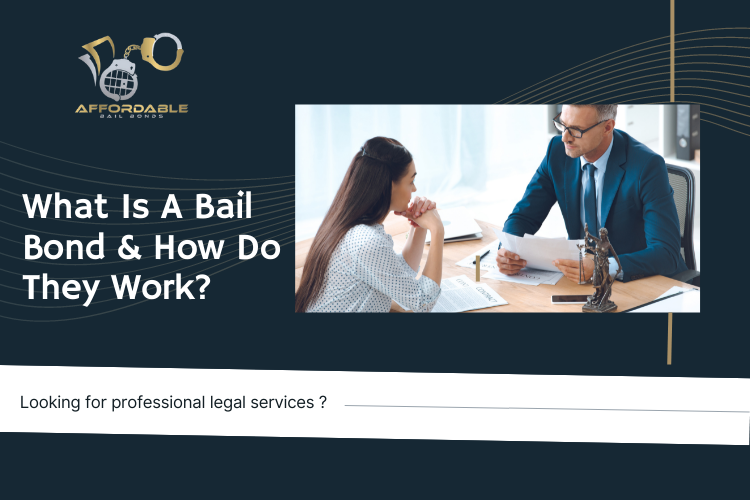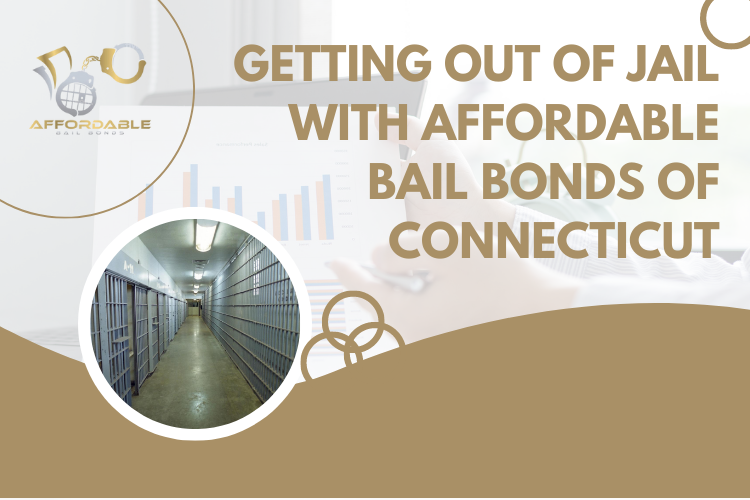What is a bail bond & how does it work?
Blog
Home >> What is a bail bond & how does it work?
Life is rough for some of us and even if we do not want to, some of us end up facing criminal charges and jail. When such a situation occurs to any of your friends or family, there is no reason to panic. The judicial system has a way to get the person released from jail until they are legally tried in court and declared guilty of the alleged offense. This temporary release is obtained using bail and bail bonds.
Bail and Bail bonds
A bail is an amount of money paid to the court to release the defendant from custody and guarantee his appearance in court during the criminal hearing. The court fixes the bail amounts depending on the nature of the crime.
If the accused pays the bail and appears in court for the hearing, the bail amount is refunded. If he fails to appear for the hearing, the bail amount gets forfeited.
Usually, the bail amounts are fixed high to prevent the accused from jumping bail or avoiding a hearing. Most accused persons do not have the means to pay such high amounts of bail money. This is where bail bonds come to one’s rescue.
A bail bond is an agreement made between a defendant and a bail agent to help him secure bail. When a defendant contacts the bail bond agent, the agent agrees to pay the bail amount and secure his release in return for a bond amount. In return for the bail bond, the agent pays the cash bail and gets the accused released temporarily till the hearing.
This bail bond amount is usually 10% of the bail amount. The bail bondsmen secure the bail bond with collateral from the accused person. If the defendant cannot pay, the agent collects the collateral from his family.
In short, the bail bond is a surety bond that bail bond companies provide through their agent to get a release for the accused from jail.
Types of bail bonds
Bail bonds are of 2 types- criminal bail bonds and civil bail bonds.
Criminal bail bonds are posted on behalf of criminal suspects and guarantee their appearance in court for the hearing. Civil bail bonds apply for civil cases when the defendant has failed to pay some debts, taxes, etc.
Bail hearing
A bail hearing is when the judge decides if the charged person is eligible for bail and fixes the bail amount. Since this is the first appearance of the accused in court, a criminal defense attorney is not needed. Based on the history of the defendant and the nature of the case, the judge fixes the bail amount. If the person is charged with violent crimes or if he has a history of criminal activity, the bail amount is bound to be higher.
When the bail amount is high, the charged person has no option but to apply for a bail bond.
Bail and Bail bond amounts
In the United States, the bail amount is fixed based on the nature of the crime as follows
- Common misdemeanor charges- $1000
- Gross misdemeanor charges-$2000
- Bailable Felony offenses-$5000- $20,000
- Violent felony offenses- for serious crimes involving violence like assault, murder, rape, and domestic violence offenses, the judge decides on an individual case basis.
Usually, the bail bond amount is 10-20% of the above bail amount and differs across the states. It also depends on the nature of the crime and the situation of the arrest. The bail bond agent takes his fees through a form of collateral like a property. Some bail bond agencies even help by offering a payment plan through credit cards. The bail bond agency fees are non-refundable.
Bail bonds agent or bounty hunter?
The bail bonds agency is responsible for producing the criminal defendant in court. If the defendant tries to skip the bail hearing without a valid reason, he is declared a fugitive and a warrant is issued for his arrest. Now, the bail bonds company has to pay the full bail amount and has no way of collecting it from the criminal. To avoid this, the bail bond company hires a trained professional called a ” bounty hunter” to hunt the fugitive and produce him in court.
Bail bond laws
In the United States, the bail bond process and laws differ from state to state. Some states like Illinois, Kentucky, Oregon, and Wisconsin prohibit bail bondsmen. In these states, there are bail bonds but they have to be paid to the court directly.
In stressful times when you or your family member faces an arrest, seek the help of a reliable bail bonds service company. A licensed bail bondsman will know all the bail bond laws and have a good rapport with the authorities in the county jails and the criminal justice system. Only such an experienced bail agent can help you gain peace of mind by securing your bail within the shortest time.



